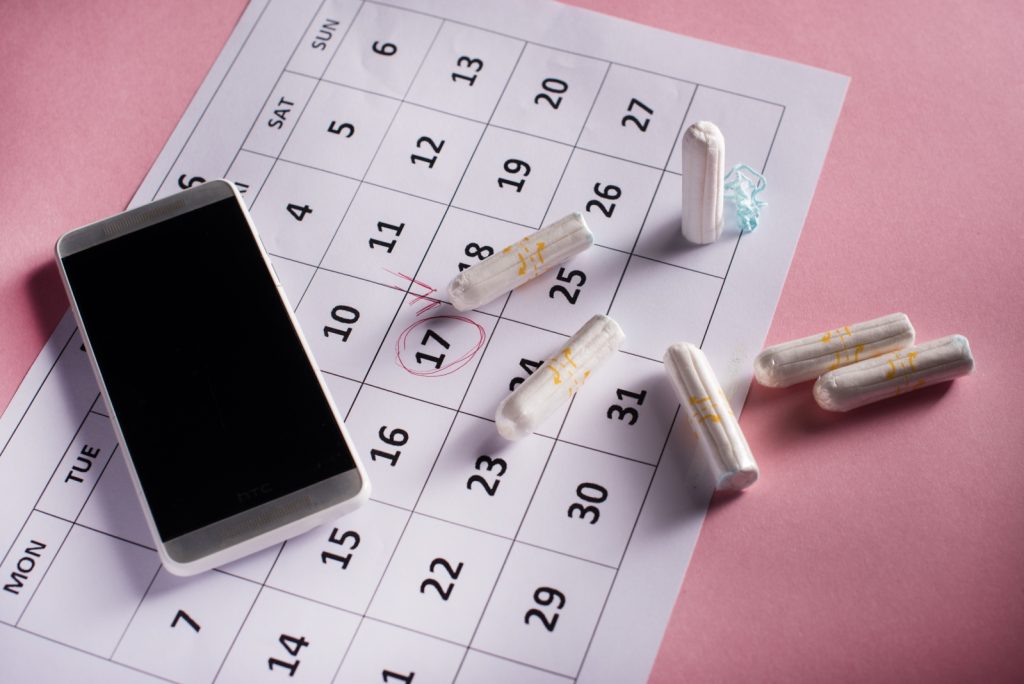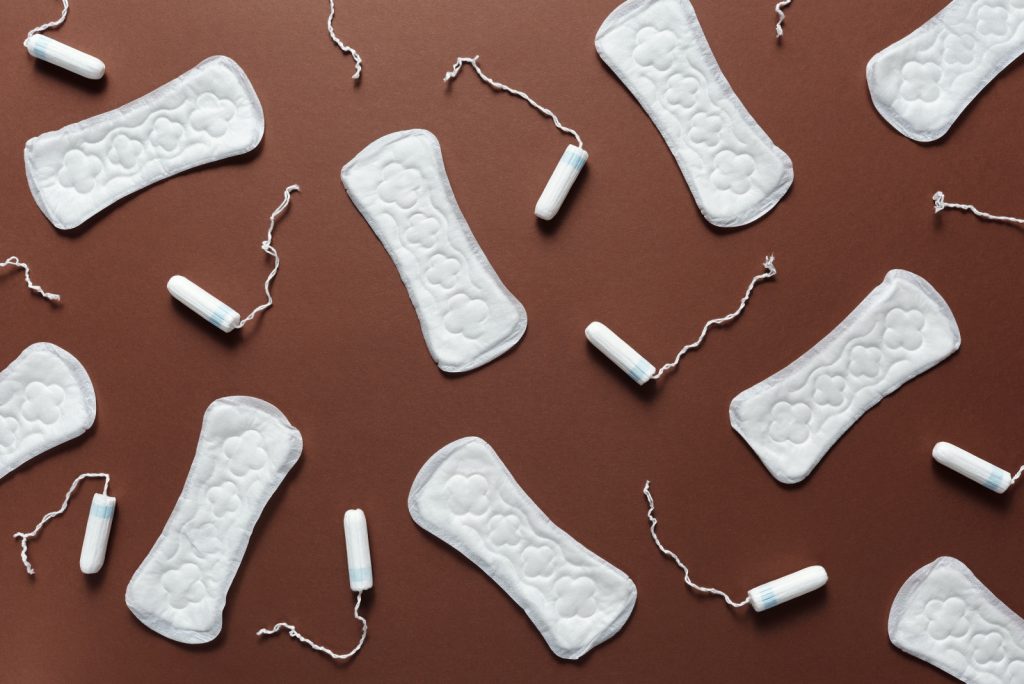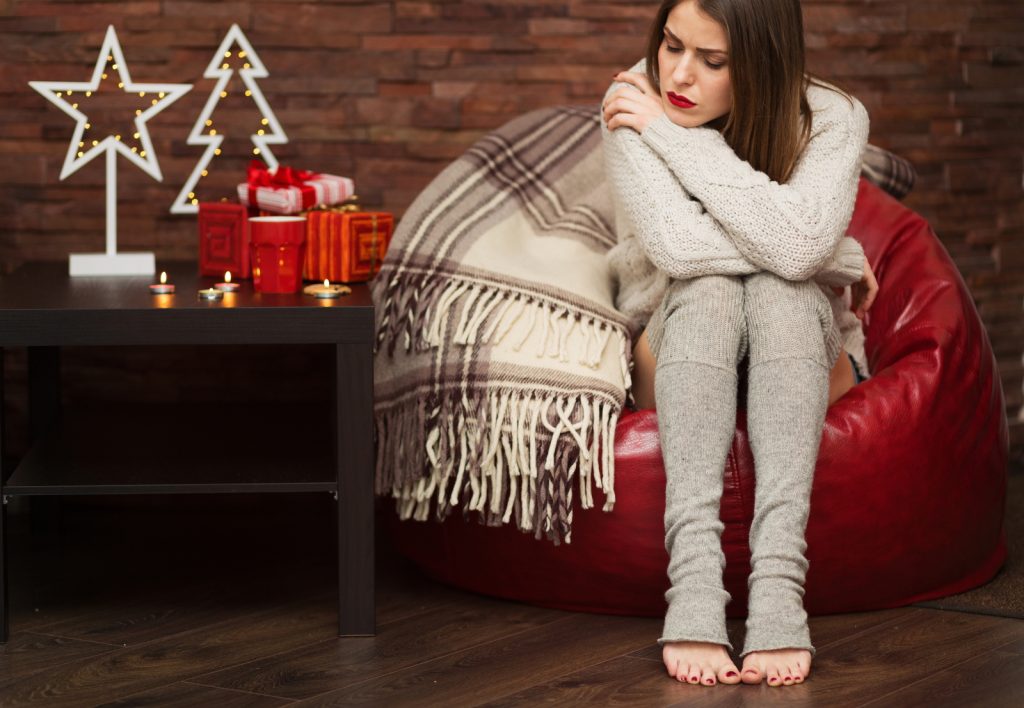Experiencing heavy periods at any time of year is frustrating. It can be especially stressful and embarrassing during the holidays, when many of us dress up and spend extra time with friends and loved ones. As a result, some women turn to wearing two pads and a tampon for that “time of the month” to increase protection. And, sadly, they don’t question it or wonder if they should see their doctor—even if their periods are heavier, longer, more painful than usual, and happening between their normal cycles.
We know your menstrual cycle can be rough. No woman looks forward to it, especially when you add in the cramps, bloating, fatigue and more. But there is a difference between normal periods and abnormal bleeding. Women of childbearing years should expect to have only one period per month like clockwork. If that period is so heavy that you feel the need to double up, it’s time to seek help for what could be an undiagnosed gynecological condition.
Is it Normal to Double Up During My Cycle?
In a word, no. But before we get to that, let’s define what a normal menstrual flow typically looks like. After all, this can be confusing since 1) talking about our periods is not something casually discussed with friends, and 2) all women are unique. For example, some women have heavy periods within the first two years of puberty that subsides on its own. Then again, others don’t. Furthermore, some women experience bloating, cramping, and pain, and others may have good and bad months. Therefore, it can be challenging to define what heavy periods are in some cases.

One way to determine what is normal for you is to track your cycle. https://flo.health has a period and cycle tracking app making it easier to spot irregularities.
With that said, a normal menstrual flow typically lasts three to eight days and occurs every 22 to 38 days, with the menstrual cycle counted from the first day of one period to the first day of the next. Also, a “typical flow” is less than 80 ml of blood per menstrual cycle. That’s about the amount contained in a small Dixie cup. Anything more than that is considered heavy bleeding, as each soaked normal-sized tampon or pad holds a teaspoon (5 ml) of blood. About one-third of women seek treatment for heavy periods, which can include these symptoms:
- Heavier than normal bleeding or clotting
- Bleeding that causes frequent pad changes (every 1-2 hours)
- Bleeding through your pads or the need to double up with a pad and a tampon
- Menstrual flow with blood clots that are as big as a quarter or larger
- Bleeding through your clothes or bedding
Many women prefer to change their pads or tampons throughout the day, regardless of the amount of bleeding they are experiencing. But if it’s because the pads and tampons are no longer useful, or you’re using multiple products at the same time to account for heavy periods, this is a problem. It’s time to seek medical help if you soak through four or more pads or tampons in a two-hour period. That is considered severe, acute bleeding.
The Dangers of Doubling Up for Heavy Periods
The dangers of long-term heavy periods can also lead to anemia and other health problems. But what many women don’t anticipate are the dangers of doubling up on pads and tampons. At first glance, this doesn’t seem like a problem outside of spending too much money on products. But in reality, doubling up in excess is not only abnormal but also not the best idea. Why?
- You could forget one tampon is already in there — Doubling up on tampons for abnormal bleeding doubles your risk of accidentally forgetting one is up there. If you forget to take both out, this can cause a foul smell, possible fever, swelling, and itchiness. You also increase your risk of toxic shock syndrome, a rare but life-threatening condition caused by bacteria getting into the body and releasing harmful toxins.
- One tampon can get stuck — Inserting another tampon when you already have one in there can cause the original one to get pushed deeper into your vagina. While it’s not going anywhere—it’s not lost; it will stay put inside your vagina—that doesn’t change the fact that it can become extremely difficult to remove.
- Pads trap moisture, which can lead to infection — Pads are meant to be a short-term solution for that time of the month, not heavy periods. Wearing one for too long or doubling up on pads leads to excess trapped moisture, which can then become a breeding ground for bacteria, yeast infections, and rashes.

Could Fibroids Be the Source of My Heavy Periods?
Heavy periods can signify more severe complications, such as uterine fibroids. These are non-cancerous growths inside a woman’s uterus. They can differ in size and either stay that way or grow at different rates. Researchers estimate that 70-80% of all women develop fibroids, and most patients we see are between the ages of 35 and 54.
Some women don’t experience any fibroid symptoms, but those who do complain of life interrupting issues ranging from pelvic pain and pressure to back and leg pain, constipation, pain during sex, and yes, heavy periods and irregular menstrual bleeding.
The good news is that fibroids are very treatable, and the result can be a symptom-free life without heavy periods. For years, the standard method of fibroid removal was surgical procedures such as a hysterectomy and myomectomy. In some cases, they may still be the recommended treatment option. But in today’s world of evolving technology, we are dedicated to treating fibroids and reducing fibroid symptoms using uterine fibroid embolization (UFE), the gold standard in non-surgical fibroid treatment.
UFE is a non-invasive procedure that only takes about an hour and offers a quicker recovery time than surgery (7 days for most patients). Rather than surgery, small particles are introduced into the uterine arteries and fibroid vessels, blocking the blood flow to the fibroids. This causes the fibroids to shrink and die. When performed by the board-certified interventional radiologists who specialize in UFE at Fibroid Institute Texas, many patients experience a high success rate with minimal discomfort.
UFE Advantages to Patients at Fibroid Institute
- Procedure typically completed in under an hour
- In-office procedure instead of hospital stay
- Recovery time is 7-10 days
- Tiny wrist puncture, no need for vaginal access
- Avoid side effects of pharmaceutical hormone therapies
- All fibroids may be treated at the same time
- No incision, which means no surgical scarring
- Over 90% of patients see dramatic improvement in symptoms
Experiencing Heavy Periods? Contact Fibroid Institute
Many women don’t know what is normal and not normal when it comes to their time of the month. As a result, they continue on, unaware they are experiencing heavy periods and that something can be done. In many cases, they will double up on pads and tampons to get through for another month. If you believe this may describe you, it is a good idea to take a consultative approach with your doctor and determine the best course of action for you. There’s no need to spend the holiday season, or any other season, in discomfort.

When it comes to treating your uterine fibroids, consider uterine fibroid embolization (UFE) for non-surgical fibroid treatment. Rather than a hospital stay, UFE is a same-day outpatient procedure. In fact, at Fibroid Institute Texas, we offer UFE to patients in the comfort of our offices equipped with advanced medical technology. Our board-certified interventional radiologists are among the most experienced Dallas and Houston fibroid doctors with a 5-star fibroid practice as rated by patients. With each UFE procedure, patients are empowered to achieve their full potential without being limited by fibroid symptoms.
For many women, UFE changed their lives. Most major medical insurance providers cover the cost of UFE. You will need a formal consultation to determine if you are a candidate before scheduling your procedure. Call for a telehealth consult or an in-office appointment at our Dallas fibroids treatment clinics at 214-838-6440 or Houston fibroids treatment clinics at 713-903-3733 or complete the form below.
"*" indicates required fields
Fibroid Institute Texas serves the Dallas and Houston areas including Fort Worth, Grand Prairie, HEB, Arlington, Hutchins, Irving, Duncanville, DeSoto, Cedar Hill, Lancaster, Cockrell Hill, Highland Park, University Park, Park Cities, Garland, Mesquite, Richardson, Dallas, Sherman, Houston, Sugar Land, Katy, Webster, Clear Lake, The Woodlands, Universal City, Spring, Kingwood, Stafford, Conroe, Texas City, Cypress, League City, Bellaire, Addison, Carrollton, Plano, Frisco, McKinney, Craig Ranch, Allen, and more.
Prior to starting any new treatment or if you have questions regarding a medical condition, always seek the advice of your doctor or other qualified health provider. This information is not a substitute for professional medical advice.

